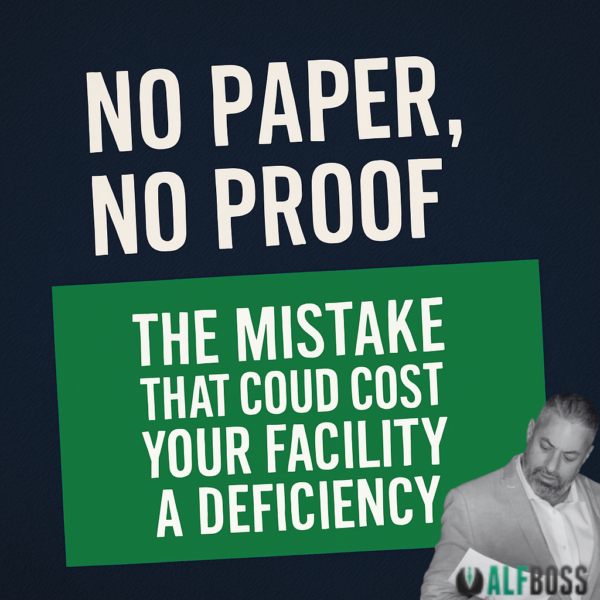No Paper, No Proof: The Mistake That Could Cost Your Facility a Deficiency
Regulation Breakdown: 59A-36.008(7) – Medication Labeling and Orders
Let’s be clear: If your facility is administering or assisting with self-administration of medications, you must have a signed medication order on file— in writing, fax, or electronic copy.
Yet far too often, facilities get this wrong.
They say, “The doctor called it straight into the pharmacy.” That might work for CVS—but it won’t fly with AHCA.
Unless the order was taken by a nurse, and properly documented as a verbal order, you must already have a signed written order in hand. No phone call to a pharmacy counts. No “they said they’d send it later.” No “we saw it on the pill bottle.”
Here’s the ONLY exception under 59A-36.008(7)(e):
- If a nurse receives a telephone order, it must be:
- Promptly documented in the resident’s Medication Observation Record, AND
- The facility must obtain a signed written copy within 10 working days.
Otherwise, there is no grace period. No signed order on file = non-compliance.
Tips to Stay Compliant:
- Do not accept “the doctor called it in” as a valid change. If your staff is giving the medication, your facility must have the order.
- Train your team to request and verify signed orders before making any medication changes.
- Use a Medication Order Checklist to track pending signatures and deadlines.
- Audit your medication records weekly—especially for new meds or changed dosages.
Remember: If it’s not in writing, it’s not real in AHCA’s eyes.Protect your license—get it on paper.
